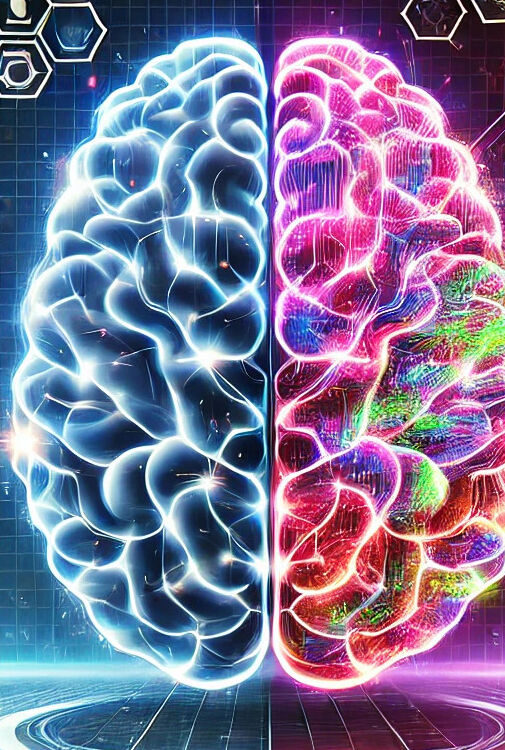Unraveling Depression: The Role of Brain Cell Birth and Death

|
Sun, 25 May 2025 13:55:38 CEST

|
|

Tue, 06 May 2025 09:47:57 EEST
The precise triggers for clinical depression remain elusive, but theories have abounded for centuries. From ancient Greece to the Renaissance, philosophers and scientists believed that bodily fluids – known as "humors" – influenced moods and personality. Specifically, black bile (melancholia) was thought to cause depression.
By the 17th century, dualism – the separation of mind and body – became the prevalent view. Consequently, depression, as a mental illness, was attributed to disturbances in the physical or social environment. By the early 20th century, even Sigmund Freud, the father of psychoanalysis, concluded that mental disorders might ultimately stem from brain dysfunctions. Today, neuroscientists understand that in many cases, mental health disorders are indeed caused by malfunctions in specific brain regions or neurotransmitters. As this article describes, new evidence suggests that clinical depression may be linked to the brain's inability to produce new neurons in a particular area.
Neurogenesis in the Hippocampus and Depression
By Barry Jacobs and Fred Gage
The emergence and recovery from depression may be explained by the neurogenesis (birth of new neurons) in the hippocampus.
Many antidepressants – particularly those that affect the serotonin system – boost the creation of new neurons in the hippocampus. It has been proposed that this specific effect could explain their therapeutic efficacy. In other words, they don't just alter neurotransmitter levels; they might alleviate depression by stimulating the brain's capacity for renewal.
Biology, Psychology, Anatomy
Publication details: This article was published in: July–August 2000, Volume 88, Number 4, Page 340 DOI: 10.1511/2000.29.340
For a long time, neurobiologists believed that the adult brain stopped producing new neurons. However, in the early 1960s, Joseph Altman from MIT reported that new neurons were indeed being generated in the brains of adult rats. This observation was largely overlooked for many years. In recent years, however, research has revived. Elizabeth Gould from Princeton University, one of the authors of this article (Fred Gage), and others have demonstrated that neurogenesis – the birth of new neurons – occurs in the adult hippocampus. Located in the temporal lobe beneath the cerebral cortex (behind the ear), the hippocampus plays a crucial role in forming new memories. The prevention of depression may partly depend on how well this neurogenesis is regulated.
New Medications and Targeted Approaches
Currently available antipsychotic medications often do not achieve the desired efficacy and almost always cause side effects, such as dry mouth or sleep disturbances. These drugs broadly affect the brain by altering chemical communication between neurons. However, recent advances in cell biology and molecular biology have begun to transform our understanding and treatment of mental health. These methods can precisely target individual molecular sites within neurons, offering more accurate and effective ways to influence brain function. One such approach – regulating adult brain neurogenesis – may significantly impact the treatment of mental health disorders (specifically in the hippocampus for depression) in the future.
Several lines of evidence suggest that the hippocampus is a key region in depression:
Reduced Hippocampal Volume in Depression: Imaging studies have observed that chronically depressed individuals often have a smaller hippocampus than healthy individuals. This difference could be a result of neuron death or reduced generation of new neurons – essentially, inhibited neurogenesis.
Stress and Depression Impair Neurogenesis: Previously discussed research indicates that stress – especially prolonged stress – reduces hippocampal neurogenesis. Since stress is one of the most significant risk factors for depression, it may contribute to the development of depression through this very mechanism.
Antidepressants Increase Neurogenesis: Many antidepressants – particularly those affecting the serotonin system – increase the birth of new neurons in the hippocampus. It has been suggested that this very effect could explain their therapeutic efficacy. In other words, they don't just alter neurotransmitter levels; they might alleviate depression by stimulating the brain's capacity for renewal.
Conclusion
The authors propose that clinical depression may partly stem from the hippocampus's inability to produce new neurons normally – particularly due to stress-induced reduction in neurogenesis. This hypothesis integrates biological, psychological, and anatomical perspectives on the mechanisms of depression.
If neurogenesis can be increased through, for example, medication or environmental factors like exercise or stress management, it could open up new possibilities for the treatment and prevention of depression. Regulating neurogenesis may be a crucial future treatment for several neurological and psychiatric conditions.
Source: American Scientist. "Depression and the Birth and Death of Brain Cells."
|
:
">Contact Us.


|
Tagit
the brain s (3),
new neurons in (3),
birth of new (3),
birth and death (3),
treatment of mental (2),
they might alleviate (2),
they don t (2),
their therapeutic efficacy (2),
the serotonin system (2),
the birth of (2),
new neurons (9),
the hippocampus (8),
the brain (4),
the birth (4),
depression may (4),
this article (3),
neurons in (3),
mental health (3),
may be (3),
clinical depression (3),
the (42),
and (21),
depression (16),
that (14),
new (12),
neurons (11),
for (10),
brain (10),
neurogenesis (9),
hippocampus (9),
|






|